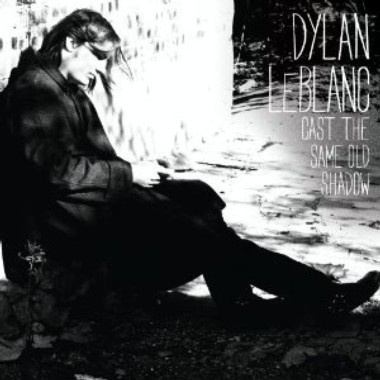Dylan LeBlanc
Cast the Same Old Shadow
(Rough Trade)
Two years ago, LeBlanc asked listeners to follow him as he explored the darker side of Southern history on his debut, Paupers Field. Now, still a youthful 22, the singer and songwriter crafts a mature follow-up that, though it doesn’t break much new ground, still provides a satisfying listen on a rainy day. One noticeable difference between the two albums is the apparent shrouding of LeBlanc’s vocals. He rarely raises his voice above a delicate murmur on the new record, and the result is that many lyrics become barely distinguishable. Where before outlaw tales stole the show, now audiences are expected to be swept away by lush soundscapes featuring soft pedal steel and backing choruses. The gospel-influenced “Innocent Sinner” includes tinkling piano and electric guitar, while “Lonesome Waltz” should give fans an idea of what kind of tempos to expect from the new disc. Perfect for a quiet night in the country. —Michael Cimaomo
Lake Street Dive
Fun Machine
(Signature Sounds)
An EP made up principally of cover tunes, Fun Machine is almost like an audition tape showcasing the band’s instrumental and vocal talents more than its songwriting skill, though the one original track on the album is quite good. The greater vibe on the album seems to be a jazzy, acoustic reworking of pop/soul faves, perfectly exemplified by their cover of The Jackson 5’s “I Want You Back.” The group applies similar reconstruction to George Michael’s “Faith,” Hall & Oates’ “Rich Girl,” The Drifters’ “This Magic Moment” and Wings’ “Let Me Roll It.” Props must be given for Mike Olson’s trumpeting, Daniel Clarke’s keys and Mike Calabrese’s drumming, but the ladies in the band (singer Rachael Price and stand-up bassist Bridget Kearney) really are the icing on this red velvet cake of delicious, organic groove. —Tom Sturm
Brian Eno
Lux
(Warp)
International man of mystery Brian Eno is as apt to produce an album of vocal-centered pop infused with his signature weirdness as he is to produce a work of minimalist instrumental ambience. Lux falls firmly into the second category. The album feels like a successor to Eno’s early works of mind-expanding ambience, especially Apollo: Atmospheres and Soundtracks, and it’s inspired by a work on view in the Great Gallery of the Palace of Venaria in Turin, Italy. The album is hard to listen to only in this sense: try paying close attention to its melodies and movements, and you will most surely fail. The music, unanchored by obvious rhythms or readily traceable melodic lines, fades from the forefront of consciousness, then percolates back into view on occasion. The result is more a hypnotic state of awareness than a traditional piece of music. The pleasant, wide-open state is surely a calculated effect—Eno is a master of process—and it makes the album an extremely practical purchase. Pop it in when you’re need of a dose of relaxing, futuristic mind expansion. —James Heflin



